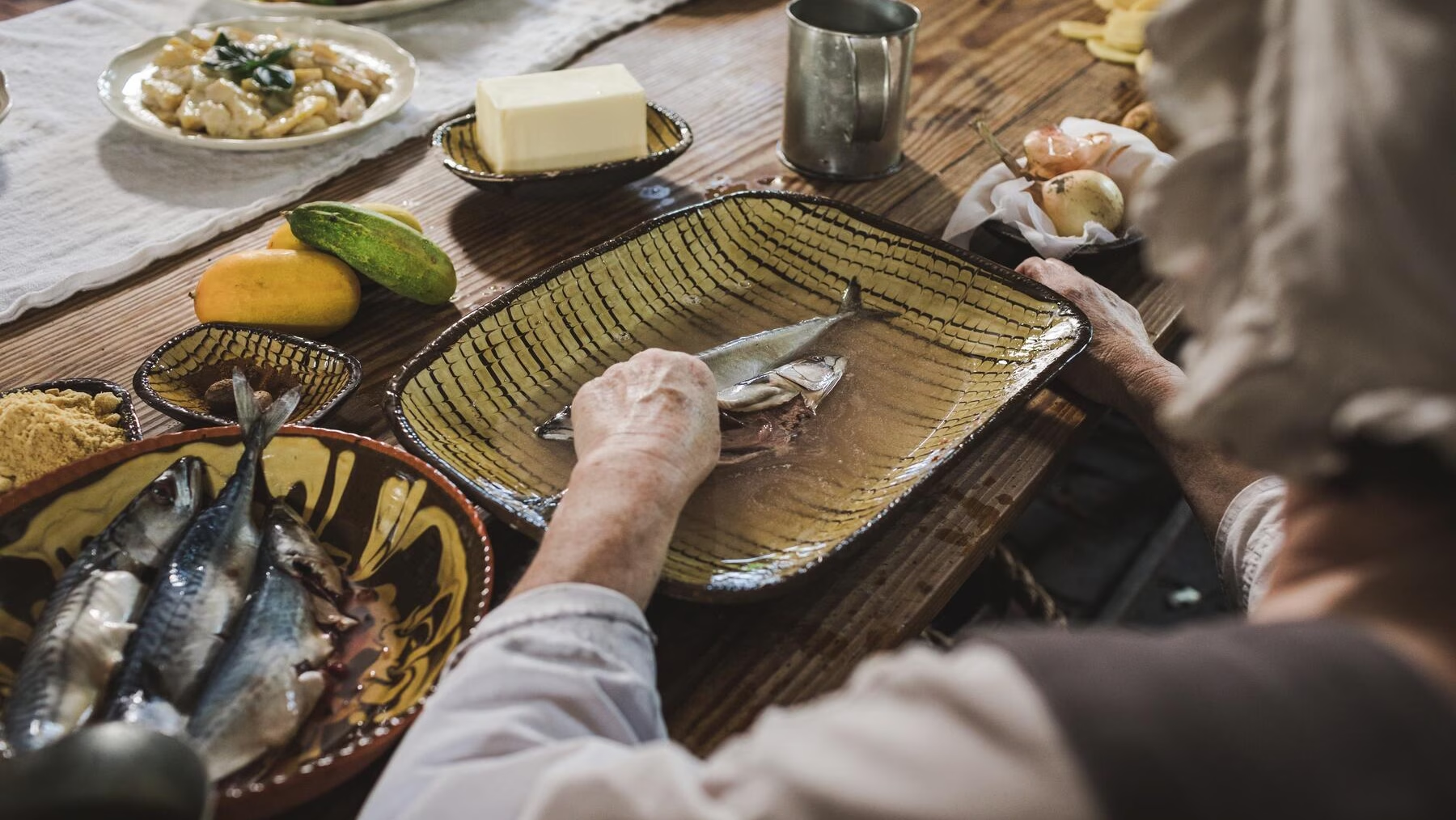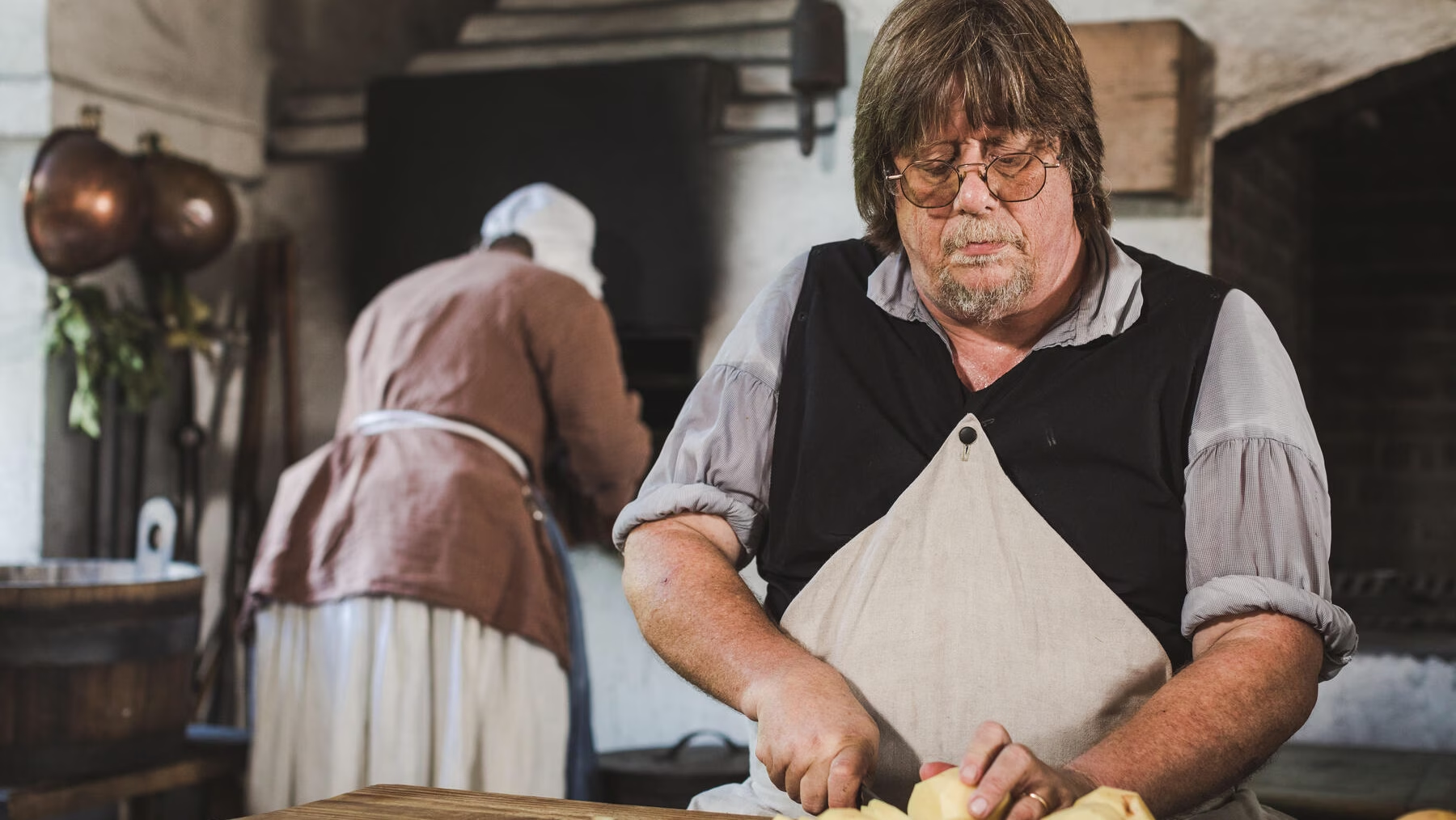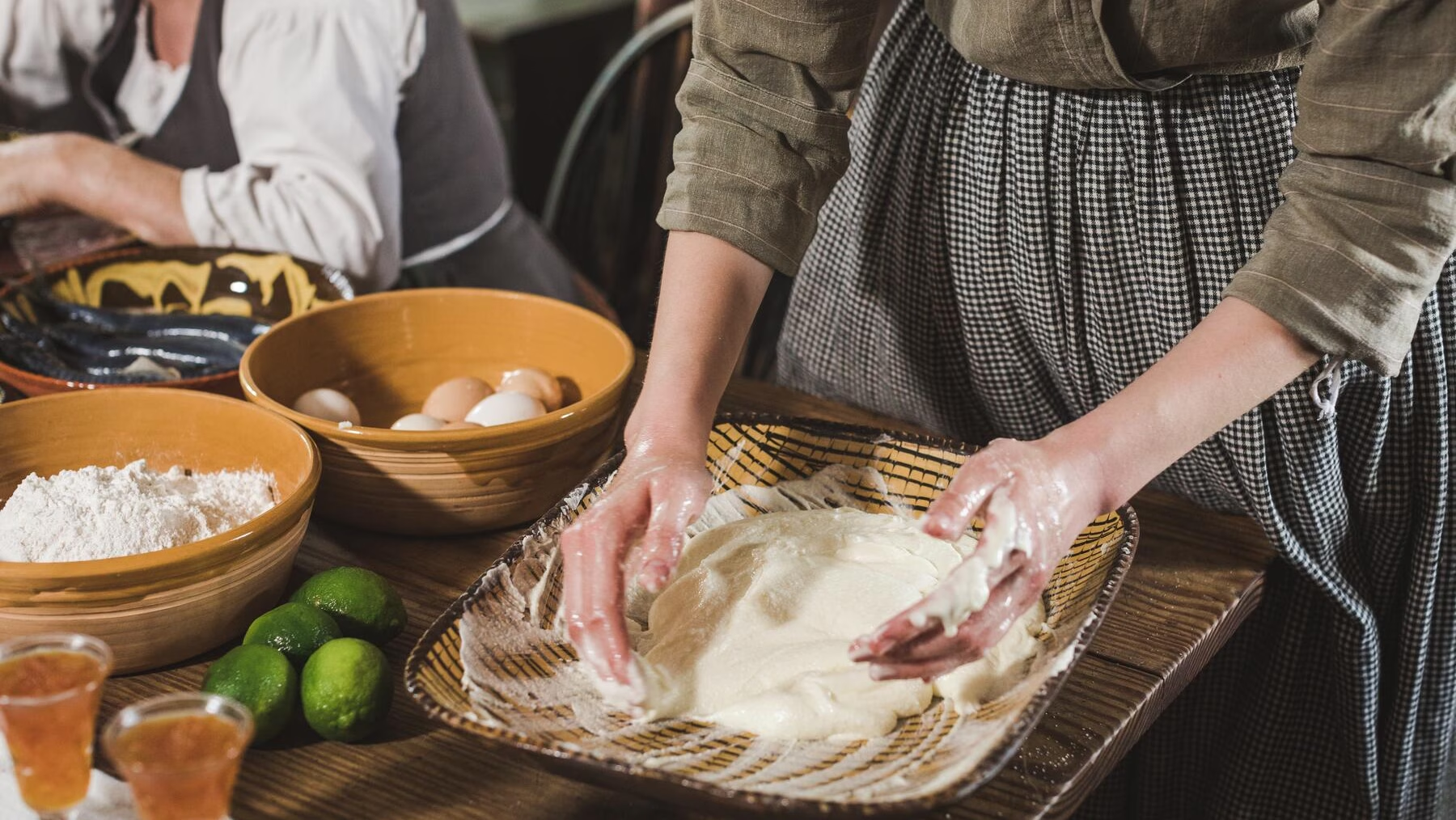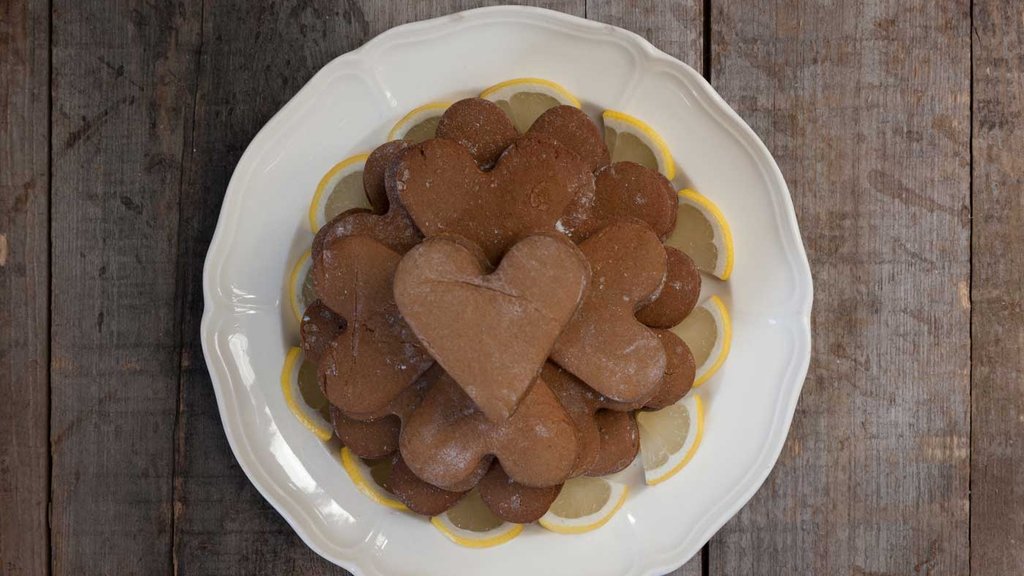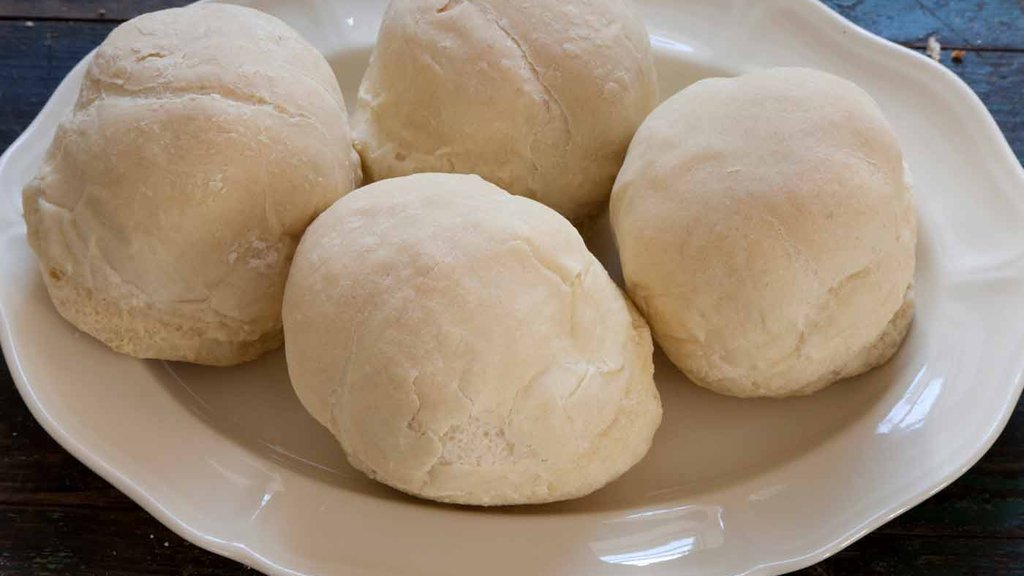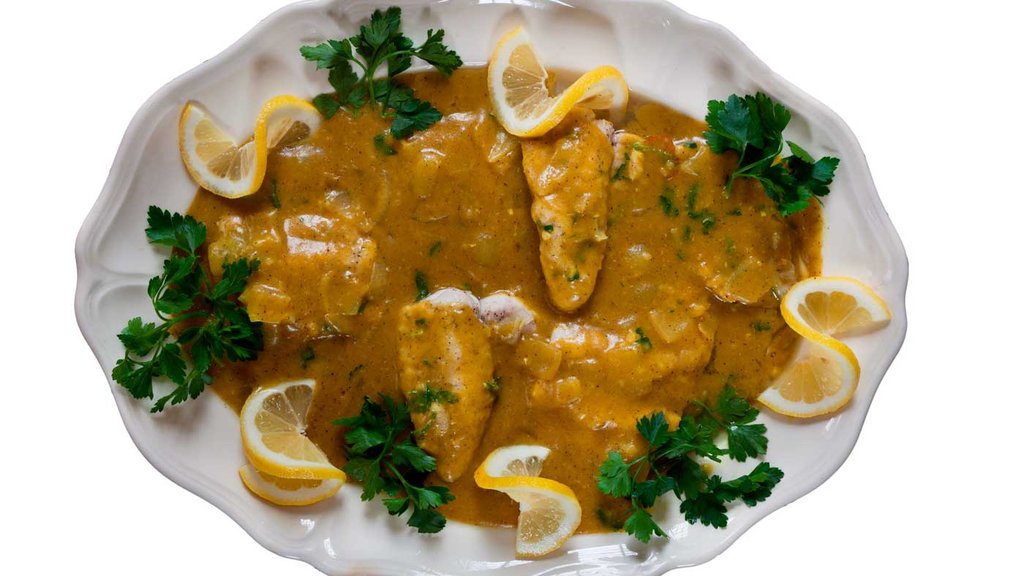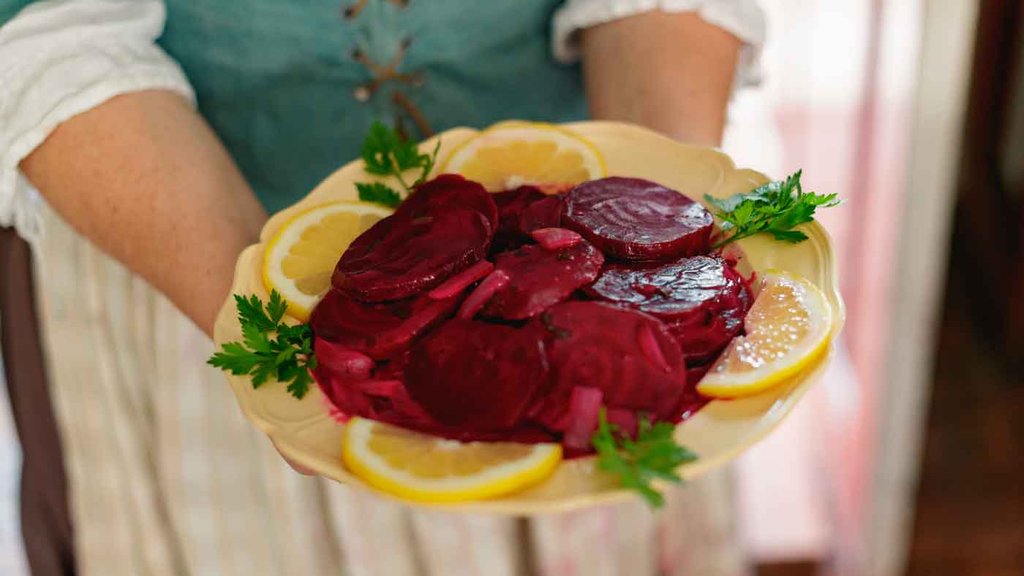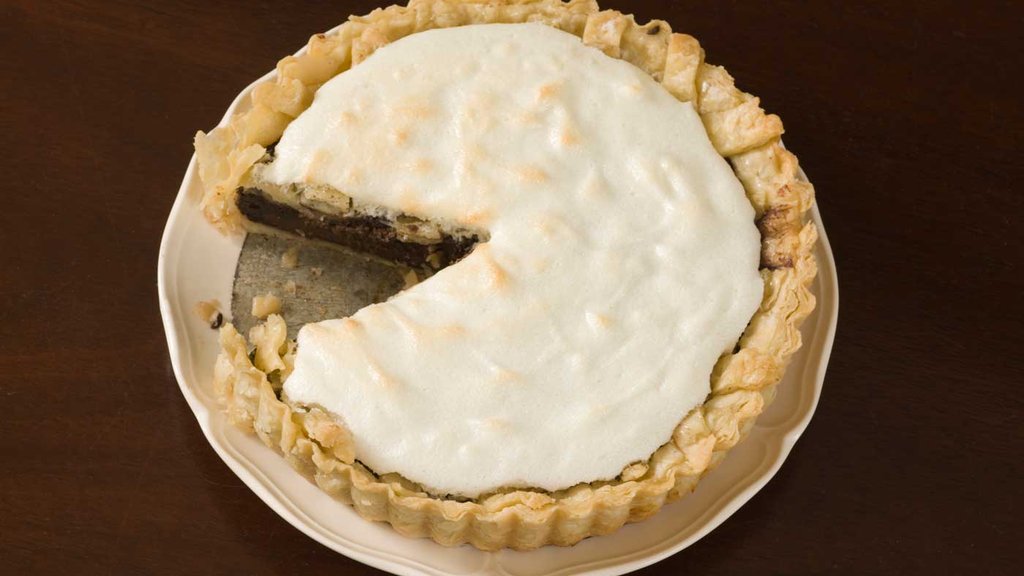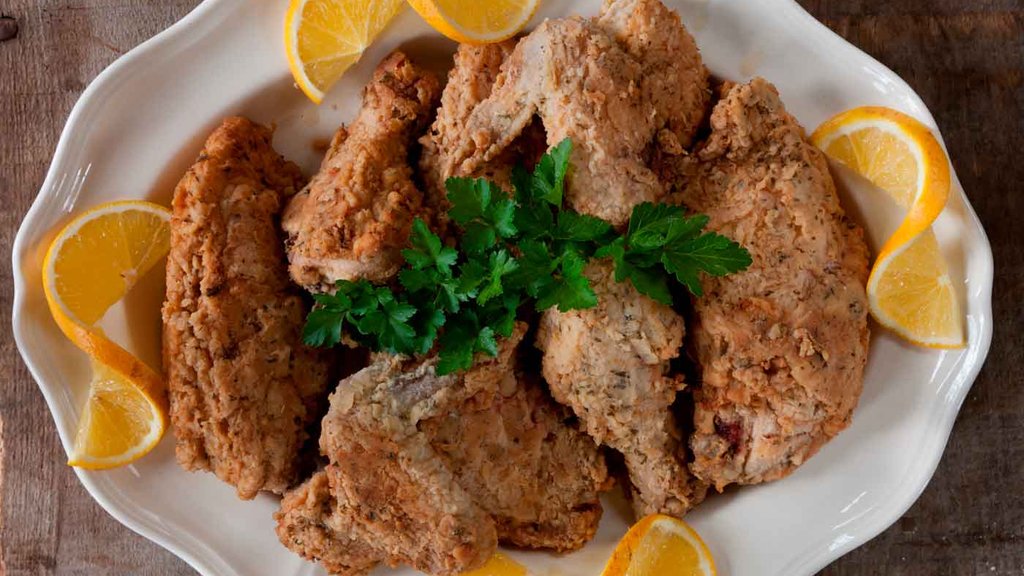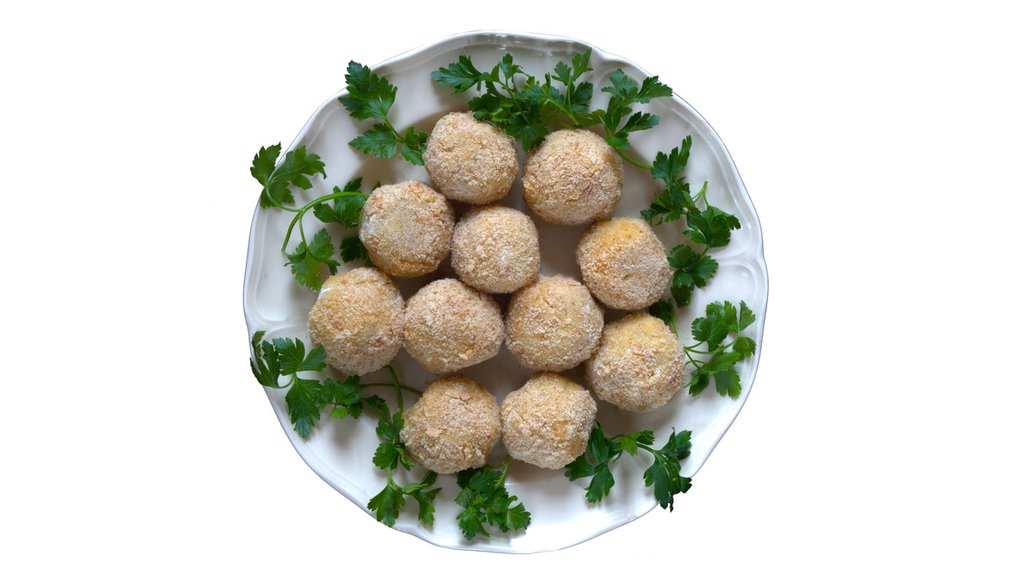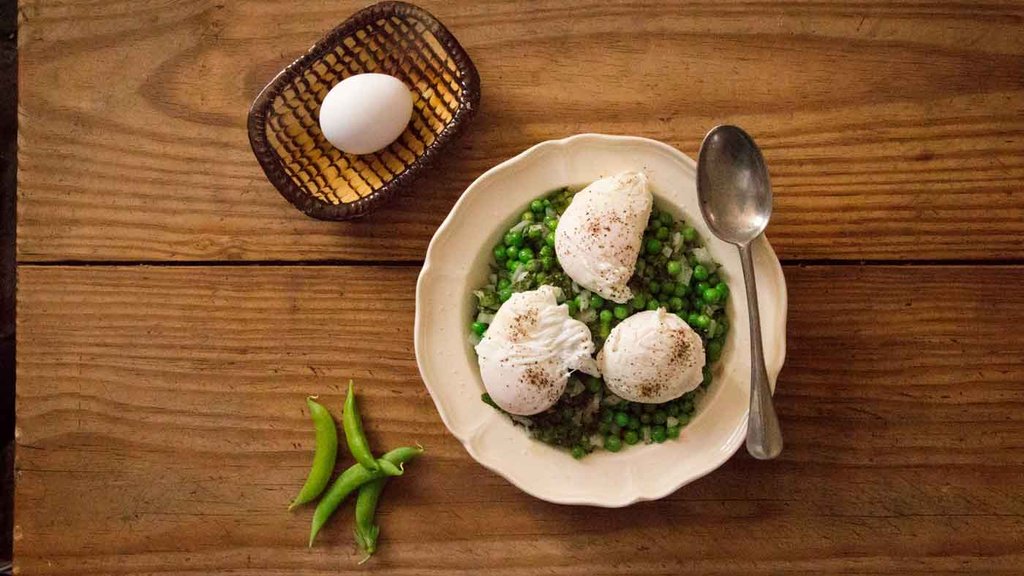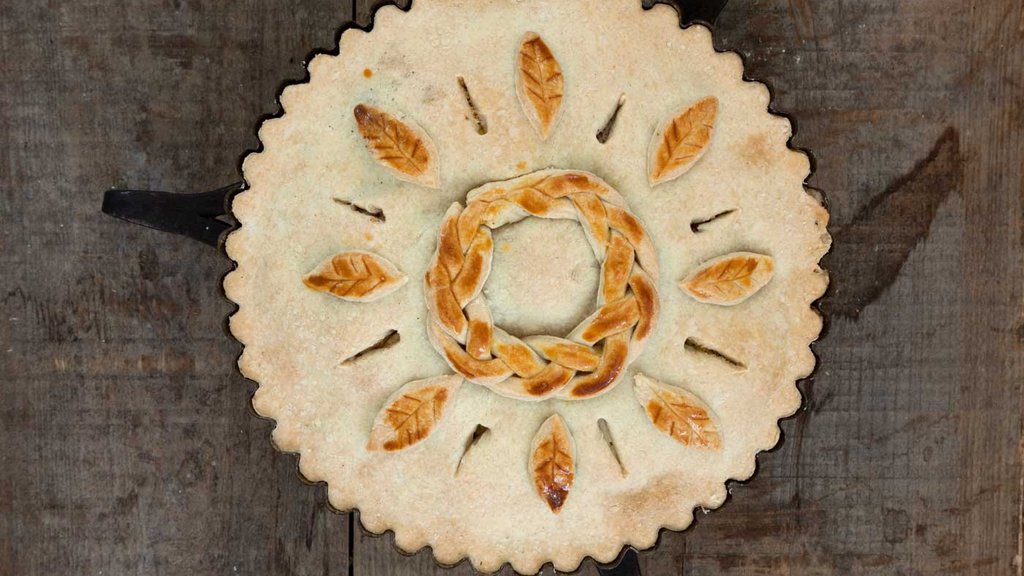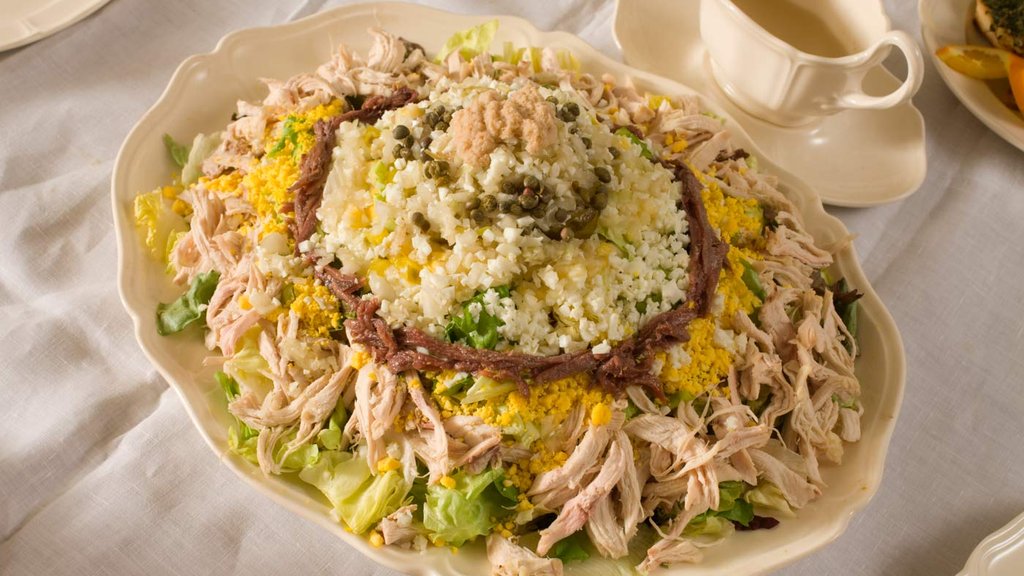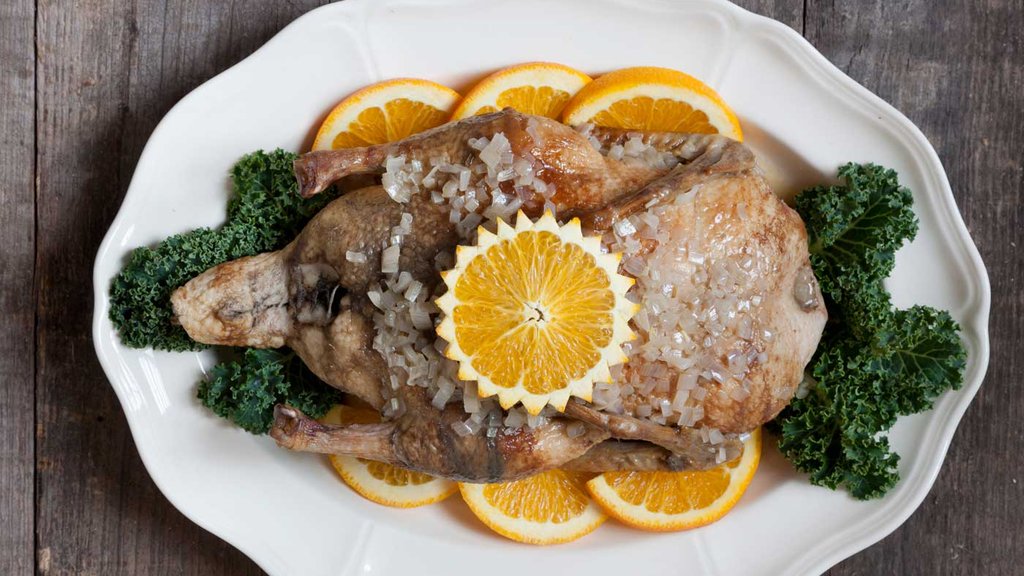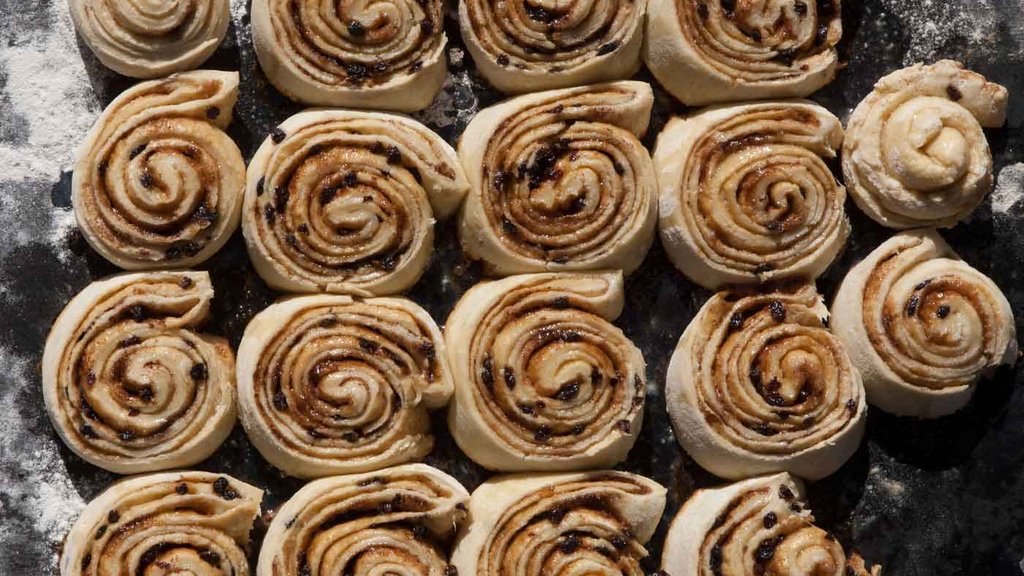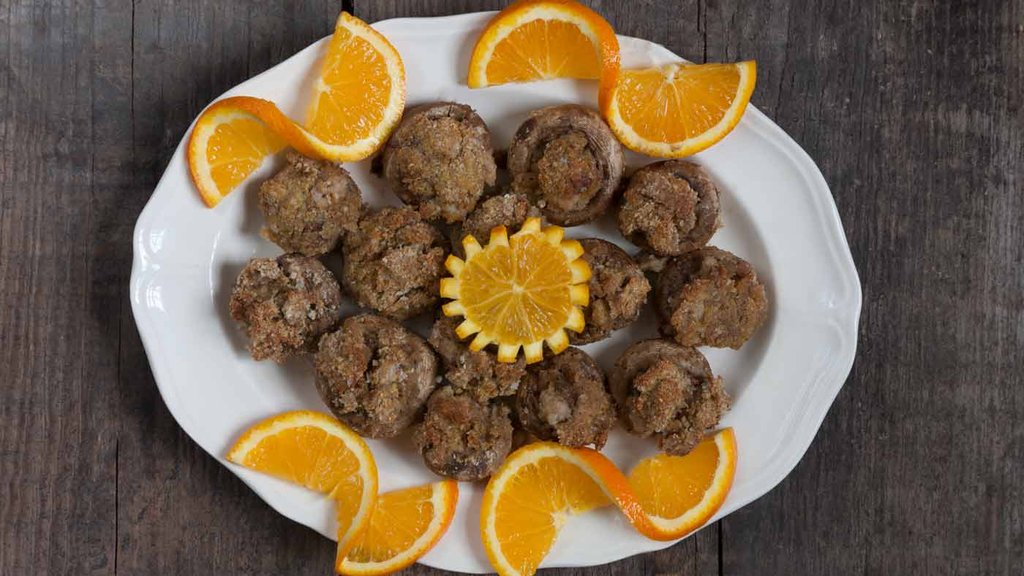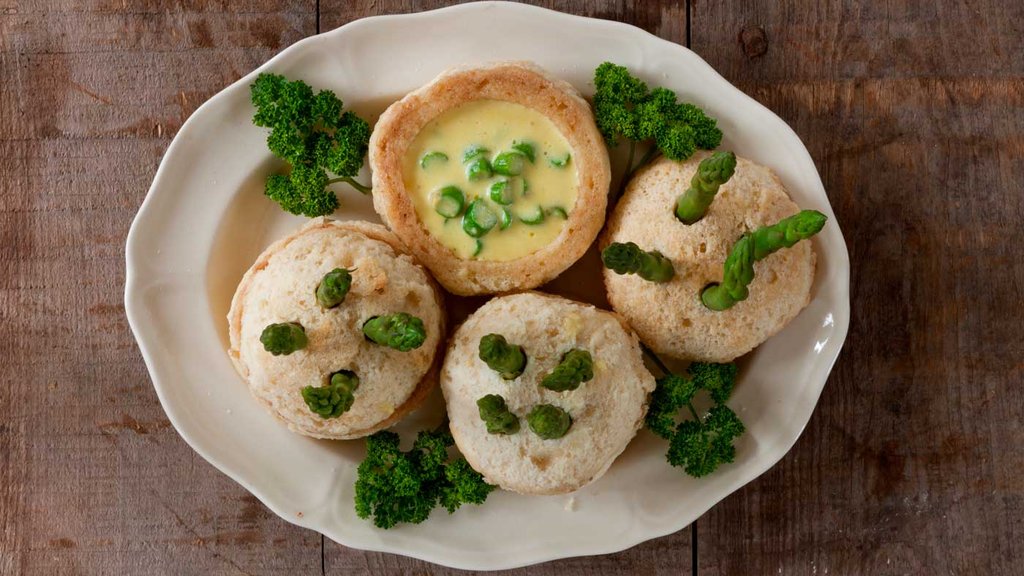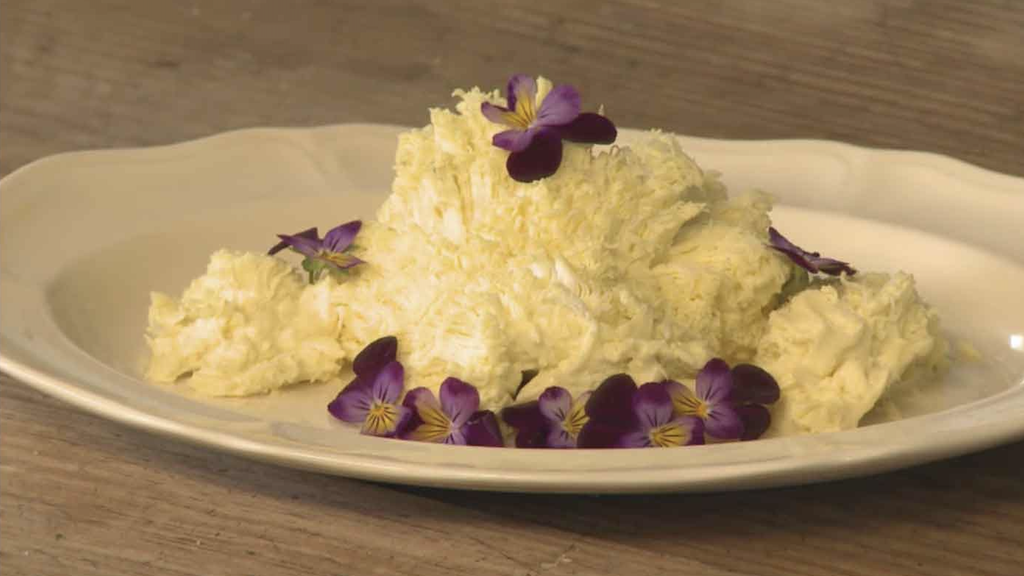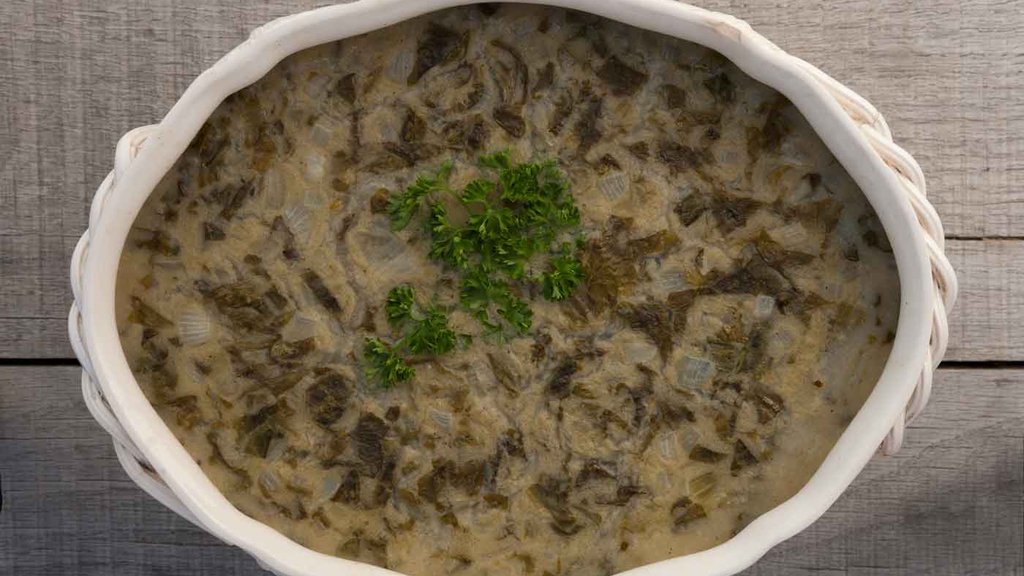The amount of spice in this cross between a ginger snap and a soft cookie gives these cookies a good bite. Try them with ice cream for a special treat.
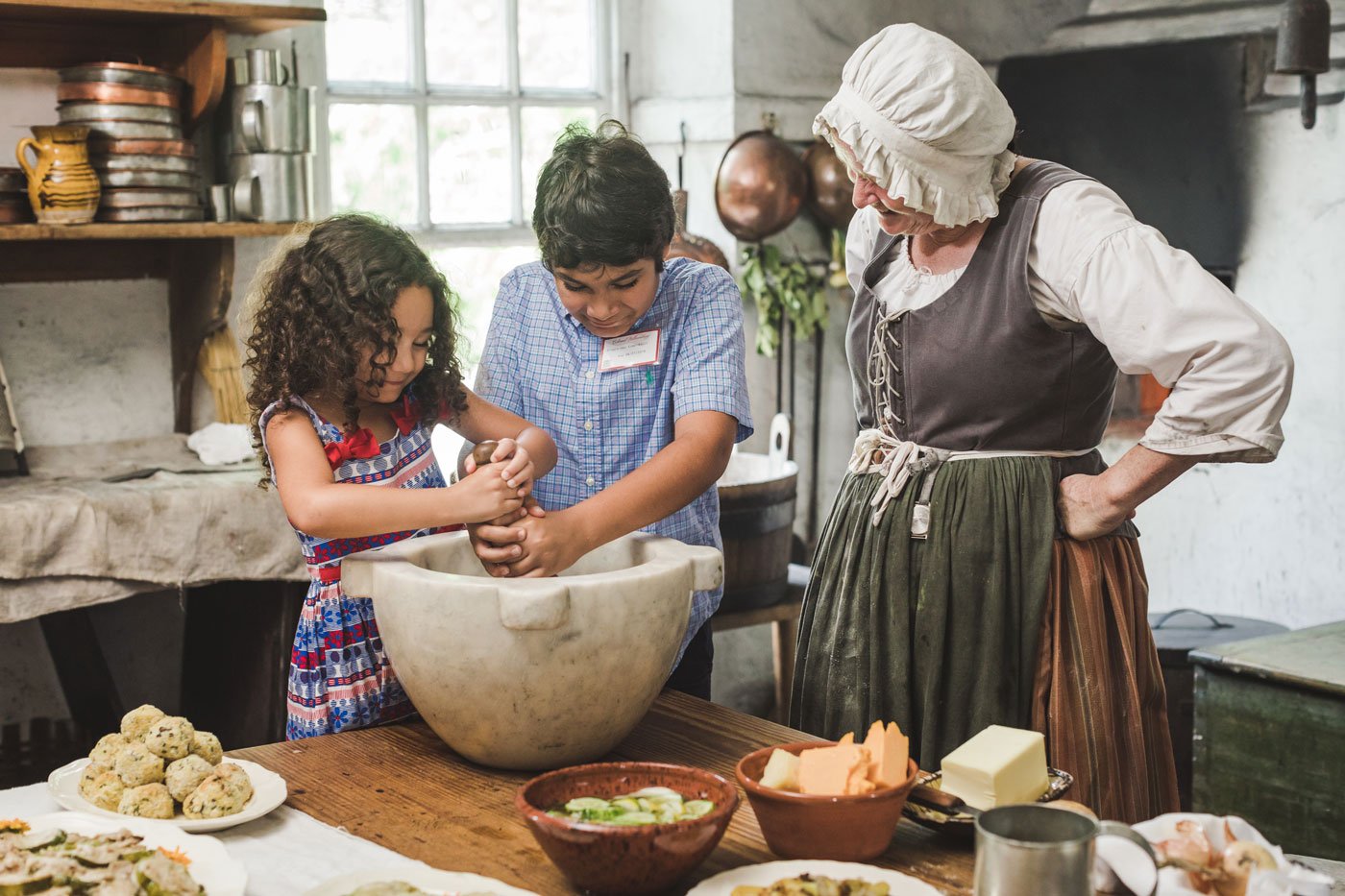
Recipes
Step into an 18th-century Kitchen
Step into an 18th-century Kitchen
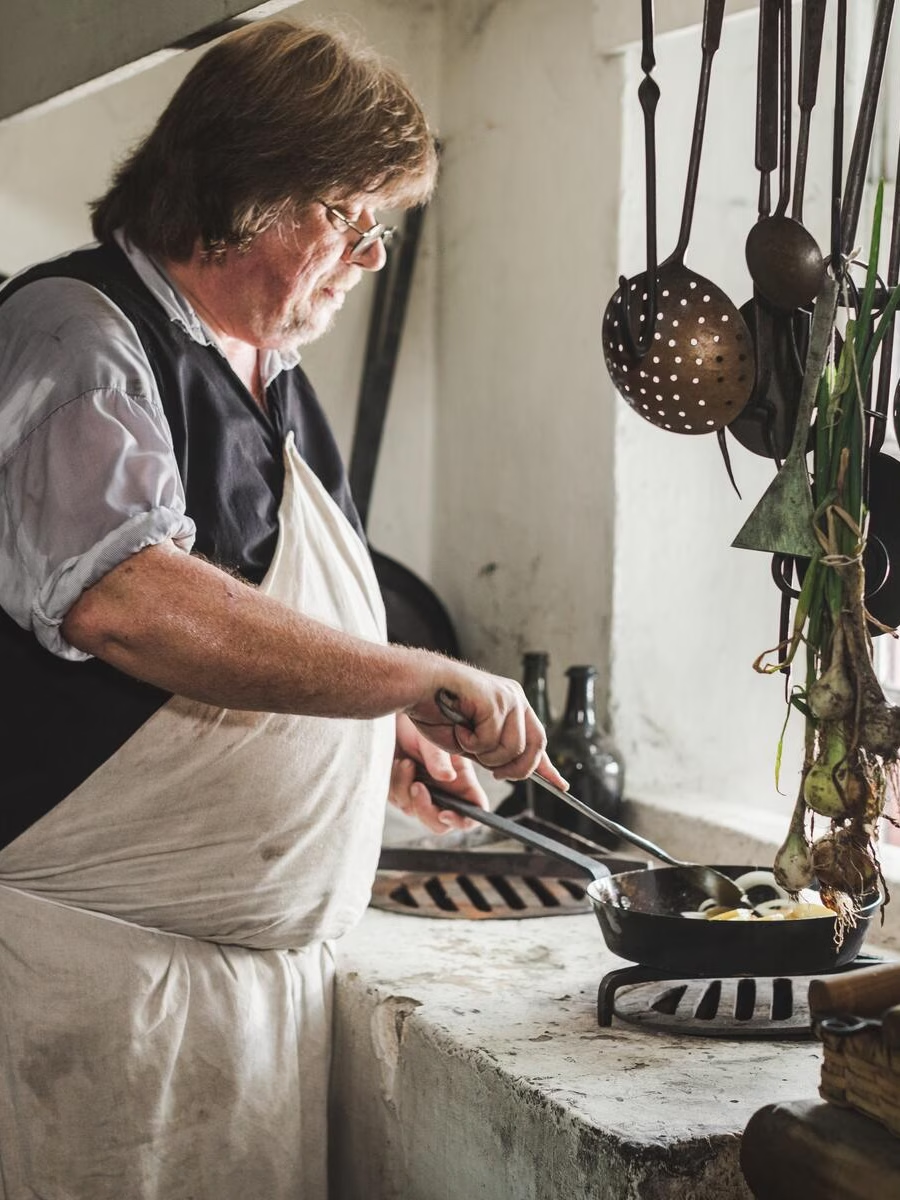
Feed Your Appetite for History
Learn how we make recipes in our colonial kitchens using the 18th-century description, then use our 21st-century translation to try the recipe at home!

Learn A Historic Trade
Visit a kitchen as our cooks prepare authentic colonial dishes using the equipment and recipes of the time.
Learn About Historic Cooking

Step into the kitchen of the Governor's Palace - the finest in Virginia 200 years ago! Take a seat at the table and learn more about what goes into making an 18th-century meal as we explore the Historic Foodways trade.
Explore Recipes
Explore recipes below or visit our Resource Hub to view all our Historic Recipes.
This fine white bread would be rolled up in your napkin when you sat at the table and used to push food on the plate and gather up sauces.
Although inspired by the East Indies, this curried catfish was invented in Great Britain. An ingredient in this recipe that makes it uniquely American is the catfish.
Beets are a versatile root vegetable. These are simmered in sauce, along with scallions and garlic, for a tender side dish.
This rich, delicious chocolate creation is a real winner. During colonial times, a single-crusted pie was referred to as a pudding, because pies were to have a top crust.
Mary Randolph is considered by food historians as one the best cooks to come out of an American kitchen. Her fried chicken recipe is the first to appear in an American cookbook.
There’s a reason our Historic Foodways apprentice, journeymen, and master tradespeople sometimes call Mary Randolph’s “Potatoe Balls” recipe the “Colonial Tater Tot.” Perhaps the most interesting aspect of this recipe is Mary Randolph’s direction to boil the potatoes with skin on to keep the starch in for frying.
Each spring Historic Foodways staff highly anticipate the arrival of one of our most favored vegetables - the garden pea. Learn more about the popularity of peas and how we use them in our kitchens!
The apples and onions sweeten the potatoes and eggs in this onion pie, and the butter and seasonings tie everything together.
Usually, meat was the criteria for judging the quality of a meal, and perhaps the host and hostess. Although it is a salad, salmagundy was one of those special dishes loved by all.
The classic pairing of duck and orange was savored by the founding generation as much as it is today. Bacon and mushrooms lend richness and depth.
These are certainly the forerunner of modern sweet rolls. Enjoyed by royalty and commoner alike, they were evidently concocted at a bakery known as the Chelsea Bun House.
Stuffed mushrooms have been a favorite for generations. This savory filled fungi can make a great accompaniment to roasted chicken or stewed beef.
In the 18th century, the words “dining” and “entertainment” were interchangeable. The visual appeal of asparagus spears “growing” out of the dinner roll further enhanced the dining experience.
This fragrant dish is often used on pancakes and scones or as a dessert sauce on gingerbread.
Almost as thick as a chowder, soup meagre is a wholesome dish that is wonderfully aromatic and pleasing to the eye in any season.
